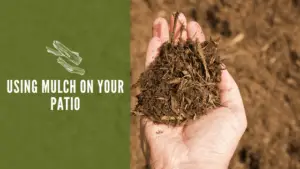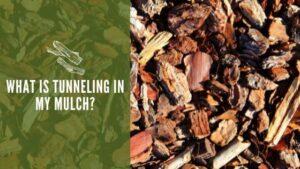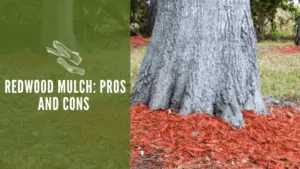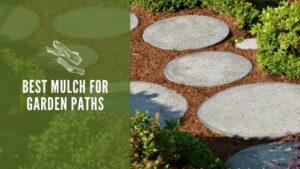Does mulch go bad
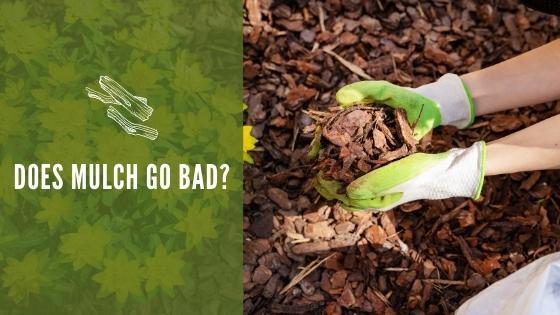
Mulch is a landscaping necessity, and it can be expensive. Many of us like to take advantage of prices for bulk purchases at the beginning of the season. The problem with this is that mulch does go bad over time. Let’s explore what makes mulch go bad and how you can prevent it.
How Can You Tell If Mulch Is Bad?
Mulch that has been spread on the ground can go bad and mold. The problem is that mold can cause a fungal infection in your plants and kill them. The most common reason for moldy mulch is that it has been spread too thick and retains moisture for too long. Mulch that is too thick also prevents sunlight from penetrating, creating the perfect environment for mold.
Also, some molds and mildews are a part of the decomposition process. This occurs naturally over time for any natural mulch. If you leave last year’s mulch on the beds and keep piling on more year after year, eventually, mold will develop on the bottom layers. That is why you need to remove last year’s mulch before applying a new layer this year.
Whether mulch is in a bag or on your landscape, you can tell if it has gone bad because you might see white spots or mildew. It will also have a sour or musty odor. It will feel moist to the touch, and it may feel slimy or crumble in your hand easily. Mold can appear like dark black patches, white spots, yellow or orange areas, or green areas.
How Long Does Mulch Stay Good For?
Some natural mulches last longer than others do. Also, some types of mulch are more resistant to mildew and decomposition depending on the tree species. Larger chips of hardwood will last longer than finely chipped pieces. Also, mulch made from cypress, cedar, and pine species will last longer than other types.
How long mulch lasts depends on the conditions. For instance, if it is in a single location, spread about two to three inches thick, and stays relatively dry, mulch can last anywhere from one to five years. If you live in a wet climate, or the mulch is spread too thick, it may need to reapply once or twice throughout the growing season. The key to making mulch last longer in your landscape is to spread it to the proper thickness and keep it as dry as possible.
Does Bagged Mulch Go Bad?
Bagged mulch goes bad if kept in a warm environment with plenty of moisture and no sunshine. This is the perfect environment for mold and mildew to develop. Bagged mulch needs to have ventilation holes to allow moisture to escape. Also, you should stack them so that there is sufficient airflow between each bag.
Mulch can be stored indefinitely, as long as it is dry and has plenty of airflow. That being said, even in a bag, mulches will begin to deteriorate after one or two years due to natural decomposition processes.
How Do You Fix Sour or Moldy Mulch?
If you find that the mulch on your landscape has gone sour or moldy, the best solution is to remove the old mulch, allow the area to dry out, and replace it with new. There is no way to recover mulch that is already on the ground. You might have some options if the mulch has turned mildewy in the bag.
One way to recover old mulch is to empty the bags onto an old tarp in a sunny area. Exposure to rain and sun will help balance the acidity and destroy mold. You can generally add it to your garden in about one or two weeks, but make sure that it is completely dry before you do so.
If you have mulch in your landscape or in a bag that has gone moldy, you can try to revive it. If you cannot, the good news is that you can add it to your compost and allow it to continue to decompose and become soil. The natural decomposition process will kill in molds or fungus as long as you make sure that it is completely composted before applying it to your garden or beds.

